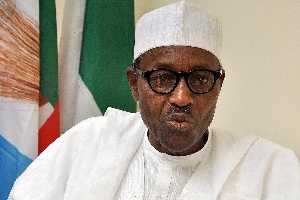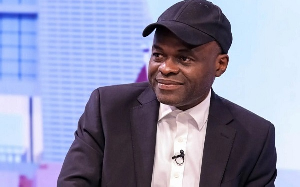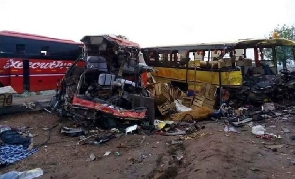In order to keep alive, man needs certain essential things, of which food, clothing, tarrifs and shelter are the Chief.
The study of how he supplies himself with these new necessities, with the amenities and luxuries which he wants for a higher standard of life, is called economics. Short of its mysteries and the jargon which so frequently surround it, economics is quiet simply our bread and butter problem.
My Auntie Yaa Abrafi Kctc an ardent reader of my post,once asked me the reason for using bread and butter in my write-ups. The word “bread” is used to signify the necessities and “butter” the luxuries of life.
It is obviously a problem that vitally affects every one of us, from the point of view of both the individual and the community.
We have seen change of regimes in this country based on these issues, politicians capitalize on the vulnerability of chunk of the masses to incite them against Governments just to kick them out of power, the military used same clever tricks to justify their coups. Our development as a people continue to fluctuate negatively because these obstructions.
Prior to the Nigerian elections we heard religious leaders, retired politicians, civil organisations etc call for change in Nigeria, some top political giants ganged up against the incumbent and effectively used sponsored media organisations to inflict serious bruises on the campaign of the incumbent.
The Bishop of Church of Nigeria, Anglican Communion, Diocese of Akure, Rt Rev Simeon Borokini openly supported the change when he said in an interview that the envisioned change was God ordained.
This very Bishop few weeks ago raised alarm over high poverty and hunger in Nigeria after the change.
He told the BBC that the Nigerian economy is on the verge of collapse.
Another interesting revelation is that this same respected man of God whose word is taken serious by many Nigerians - speaking during this year’s 1st session of the twelfth synod at St Stephen church, Iju in Akure on a topic “stewardship”, said the incumbent government seems confused.
Already Buhari has started giving excuses for the abysmal performance. He attributed the quagmire to drop in the price of oil globally and cleverly laid the blame on the doorsteps of all Nigerian accusing them of relying solely on oil.
All renowned rating agencies including Fitch continue to downgrade Nigeria ever since Buhari took over and it is projected that Nigeria will not be able to repay its debt obligations.
Fitch for instance downgraded Nigeria’s long term foreign currency issuer default rating to B+ from BB- and long term local currency IDR to BB- from BB.
The general position expressed by almost all the Briton wood institutions is that Nigeria’s fiscal and external vulnerability has worsened under Buhari and it is projected that the government’s general fiscal deficit could grow up to 4.2% by the end of 2016 after averaging 1.5% under the previous regime.
A recent capital importation report by Nigeria Bureau of Statistics confirms that,last year,the country recorded total inflow of capital into the economy stood at $9.6 billion which was a 53% drop from previous year and the lowest recorded total since 2011.
Some of my friends in the media vigorously attack Nigerian journalists and statesmen who openly commend the Ghanaian administration for the strides made so far.
Chief Dele Momodu recently said this about of our President: “People don’t know why I love Ghana so much and the current leader in particular. He is modest, not flamboyant as we see of other leaders.”
On BBC few days ago, Nigerians interviewed used the positive signs in Ghana as appropriate yardstick to attack their government, a documentary going round in the international media exposes the lackadaisical performance of the Nigerian government-using the positive performance recorded under John Mahama.
The latest BBC reports on the Nigerian economy captures that the cost of living in Nigeria continue to soar, and in June, accelerated to 16.5% the highest rate in almost 11 years.
Gari which is supposed to be the cheapest commodity in the country cannot be afforded by the poor.
This is the situation Nigeria finds itself after they got the change they yearned for. Usual with our African politics, people have started calling for the return of Goodluck Jonathan.
We don’t have to enter this demonic terrain after the success achieved over the years . We’ve seen tremendous improvement in the economy and at the social level since 1992, the Rawlings regime and that of Kufour all contributed immensely to the growth we seeing, the Mahama administration has added value to what he inherited.
The infrastructure development recorded under this government is the highest after Nkrumah,the improvement in the health and education sector cannot be downplayed.
Policies rolled out by the regime to close the yawning gap between the toiling but highly productive rural folks and city officials is commendable.
The IMF director Christie Lagarde was right when she described what we called economic success between 2005-2008 as mediocre growth.The base of the economy was still shattered and now being built to restore the confidence of the people.
My fear stems from the fact that a renowned economists and a vice Presidential candidate of a party whose philosophy stands on ideals of conservatism, will confidently move around with a message of establishing one factory in each district at this point of our national reconstruction.
How do you implement such a policy after scrapping 70% of taxes across, build 350 secondary schools,free secondary school etc. You sum up all these deceitful platitudes and you begin to shiver.
We are made to believe that the issue of unemployment would be buried under their government forgetting that we were made to line-up in hot sun to register for employment only to be told in 2005 by Ghana Statistical service that unemployment figure for that year was the highest so far, and remains the highest today.
The lowest unemployment figures recorded between 2001-2016 was recorded in 2013 under Mahama. So who possess the practical record to support his call.
Edward Akufo-Addo and Busia played pivotal roles in the decision to scrap free university education in Ghana and recommended the loan scheme. The two flanked Afrifa when he announced the cancellation of training college allowance came into government, and defended those decisions.
The government headed by Edward Akufo-Addo openly threatened judges in the country and warned that the courts cannot overturn decisions taken by their government.
Ghana’s economy suffered unprecedented bruises under Edward and Busia, our credit worthiness was wiped off and all the major financial institutions including the world bank and IMF and major world leaders like Nixon etc refused to grant all requests brought before them.
People mention the name of Acheampong in tears and wish we could resurrect him after decades of demonisation and interesting same demand is being made by others for Rawlings.
We must be guided by the past as we push through our inclinations.
Sustainability and consolidation are two important factors we must look at going forward..
Opinions of Thursday, 21 July 2016
Columnist: ghanapoliticsonline.com















